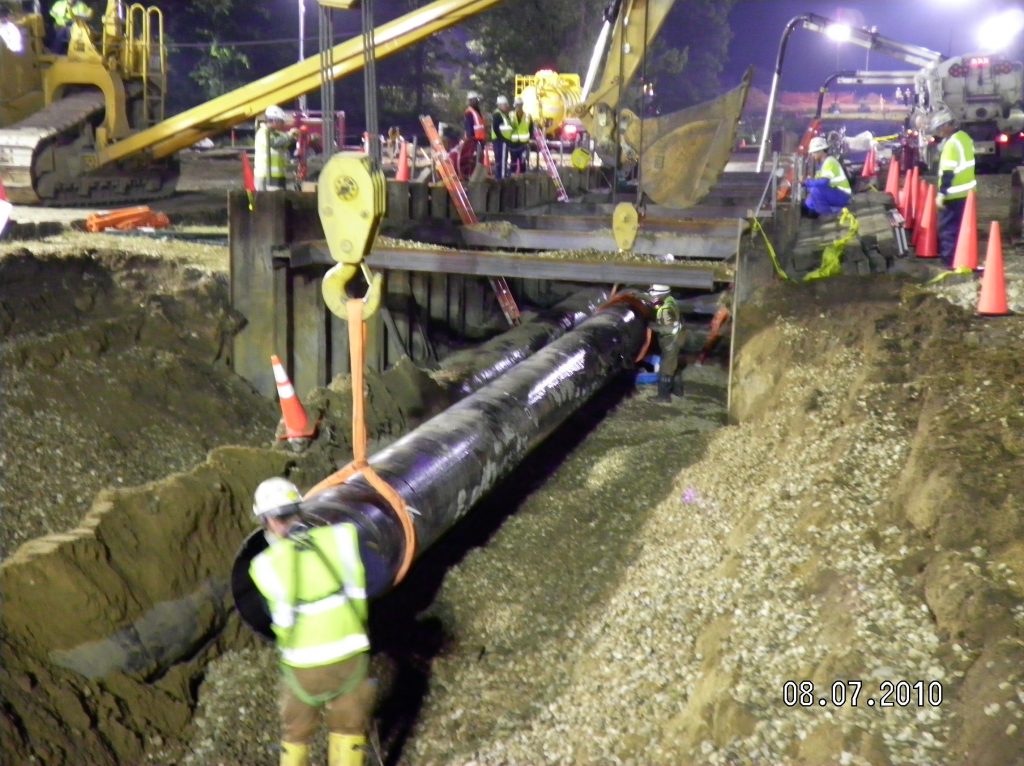A federal judge in Texas has dismissed a lawsuit challenging the Biden administration’s cancellation of the Keystone KL pipeline, saying the suit had become moot after the pipeline’s developer said it would no longer pursue the project.
Not to Be
This would seem to bring to an end the more than dozen year saga of the Keystone XL Pipeline.
As designed, the Keystone XL Pipeline could have carried up to 830,000 barrels of crude daily to from Canada to Nebraska, where it would be transferred to another TC Energy pipeline for shipment to refineries and export terminals on the Gulf of Mexico.
The vast majority of the pipeline did not need federal approval and had been built or connected in segments stretching from the Gulf Coast of Texas to the Midwest. The final segment needed approval from the U.S. State Department.
Under President Barack Obama, the State Department twice issued reports concluding the pipeline would deliver large quantities of Canadian oil to U.S. refineries, create thousands of jobs, and have minimal environmental impact in the United States. Despite his State Department’s conclusions, Obama denied approval of the final leg of Keystone XL, saying it would contribute to climate change.
Just two months after being sworn in as president, Donald Trump reversed Obama’s decision and directed the State Department to approve Keystone XL. In June 2017, after reviewing its impact on the environment and climate, the State Department approved the permit to build the $8 billion transnational pipeline.
Biden Acts, Company Ends Quest
As one of his first official acts, President Joe Biden issued “Executive Order on Protecting Public Health and the Environment and Restoring Science to Tackle the Climate Crisis” reversing the Trump administration’s grant of a permit for Keystone XL, stating.
“The Keystone XL pipeline disserves the U.S. national interest,” said Biden’s January 20, 2021 order. “The United States and the world face a climate crisis. The crisis must be met on a scale and at a speed commensurate with the need to avoid setting the world on a dangerous, potentially catastrophic, climate trajectory.”
Twenty-three Republican attorneys general (AG) sued to overturn Biden’s order.
In his Jan. 6 decision, Judge Jeffrey Brown, of the U.S. District Court of the Southern District of Texas, granted the request of the Biden administration to toss the states’ challenge to Biden’s order because the project’s Canadian developer, TC Energy, had abandoned the project on June 9.
Brown, a Trump appointee, refused to rule on the constitutionality of the president’s action as the AG’s had requested in their lawsuit.
“The court takes TC Energy at its word that Keystone XL is dead,” Brown’s decision said. “And because it is dead, any ruling this court makes on whether President Biden had the authority to revoke the permit would be advisory.
“Thus, the court has no jurisdiction and the case must be dismissed as moot,” Brown ruled.
‘Anticlimactic … End’
The Keystone XL project ended badly, but other battles in the ongoing war to secure energy sanity in the United States remain, says Bette Grande, president of the North Dakota-based Rough Rider Policy Center.
“This ruling is both an anticlimactic and fitting end to the nearly 13-year-old Keystone saga,” said Grande. “This project birthed the use of executive power in Washington, D.C. to push a radical climate agenda – a fight that continues on far too many fronts today.
“It would have been nice to get a ruling on Biden’s authority to revoke the permit, but the dismissal on mootness grounds cements Keystone’s legacy as a political football, the exact opposite of regulatory certainty,” Grande said. “That will be a fight for another day, likely soon.”
Political delays of critical infrastructure add to their costs and can spell their doom, Grande says.
“Large infrastructure projects like the Keystone XL pipeline take years and capital and cannot by subject to the whims of elections and politicians,” Grande said. “This example of the Keystone XL project will put sand in the wheels of needed infrastructure projects in the future.”
Bonner R. Cohen, Ph.D. (bcohen@nationalcenter.org) is a senior fellow at the National Center for Public Policy Research and a senior policy analyst with the Committee for a Constructive Tomorrow.
